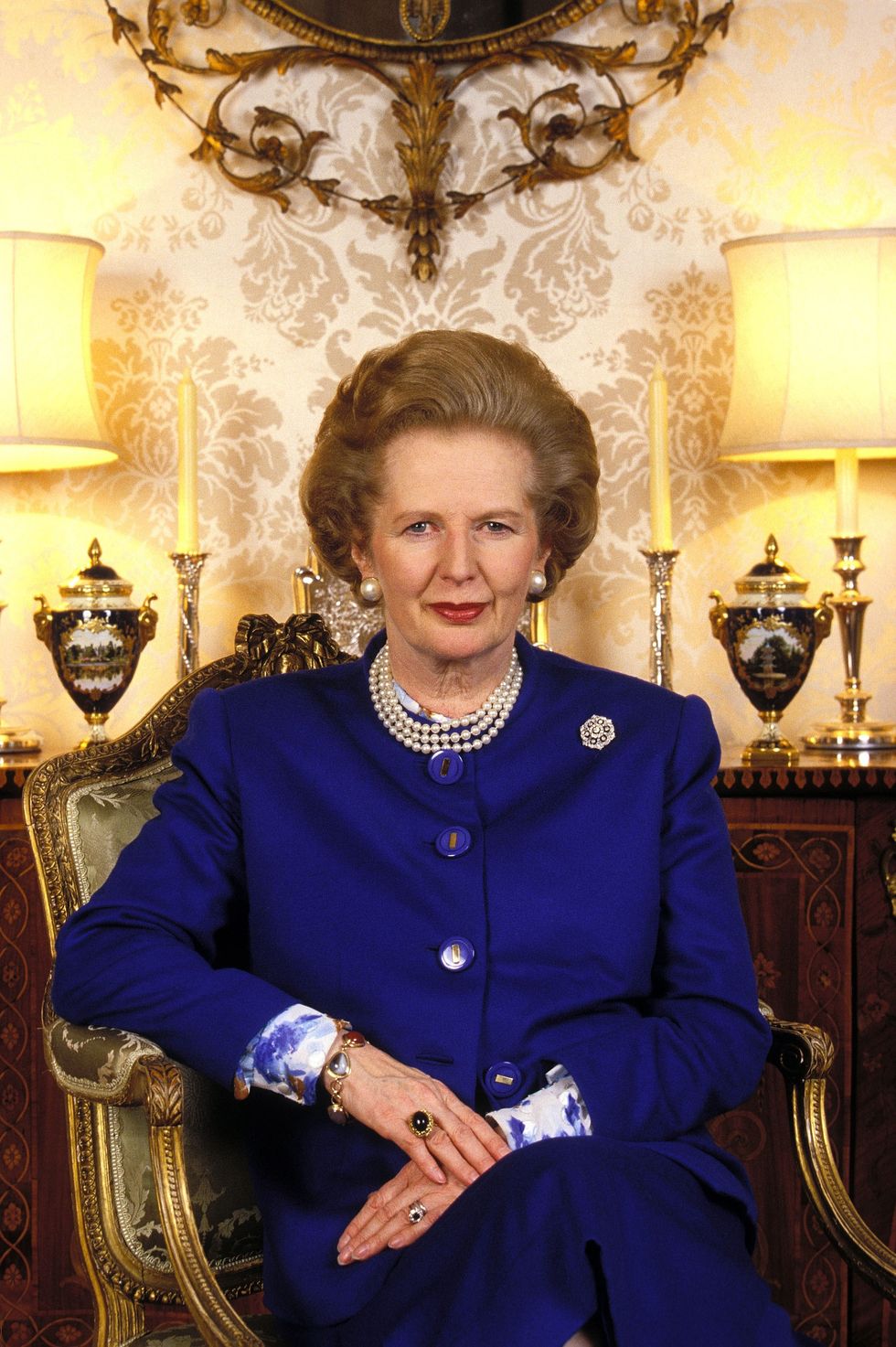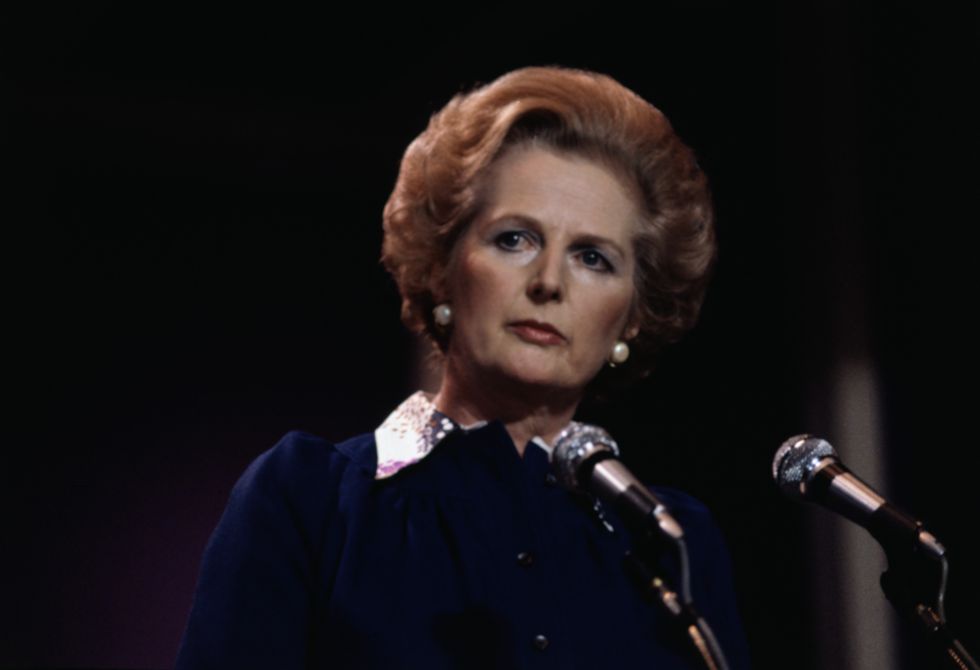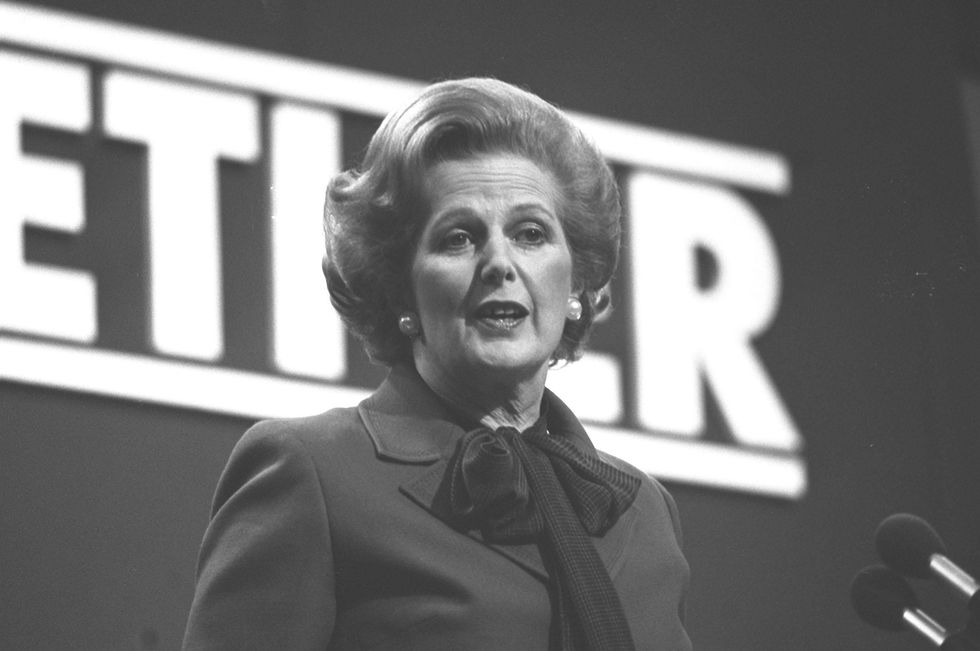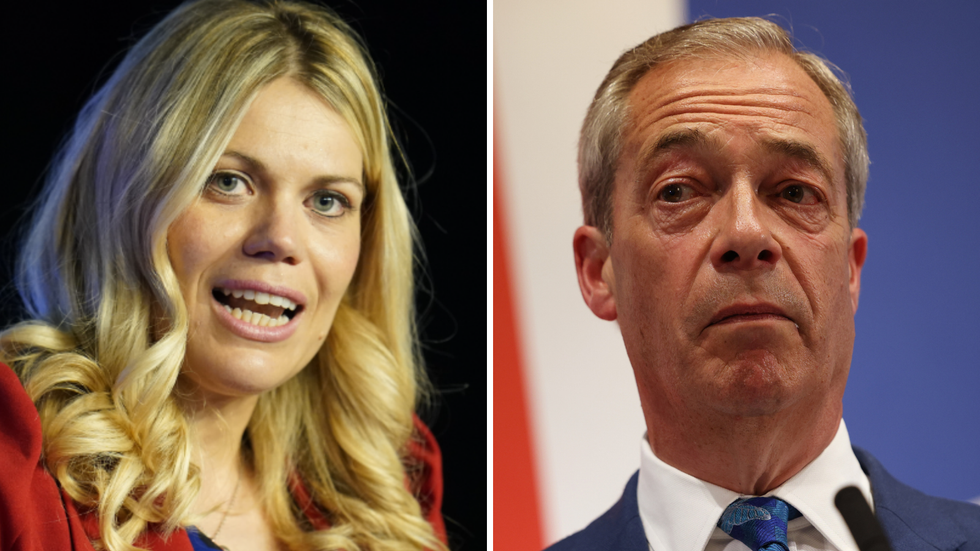Jacob Rees-Mogg pays tribute to Margaret Thatcher - WATCH
GBN
OPINION: Former Tory MP Miriam Cates exposes Reform's lack of concrete policies on a vital issue facing Britain
Don't Miss
Most Read
Trending on GB News
50 years ago this month, Margaret Thatcher was elected leader of the British Conservative Party.
Four years later, she would become Prime Minister of the United Kingdom, and the first female leader of a major Western power. Thatcher became – alongside her friend President Ronald Reagan – the pin-up of the conservative movement in the late 20th century.
Margaret Thatcher still has goddess-like status in some factions of the Tory party. Yet outside the smoking rooms of the House of Commons, Thatcherism is being replaced by a new populist conservative movement.
The driving force of the new politics is a sense of economic and social injustice, a feeling that the established systems of economics, global markets and politics have favoured elites but have left behind ordinary people, the working classes, those who were once built the foundations of this nation and others across the West.
 Thatcher was prime minister from 1979 to 1990Getty
Thatcher was prime minister from 1979 to 1990GettyThatcherism—specifically free market liberalism—has nothing to offer the rising call for an end to the established liberal order, in part because it was free market liberalism that got us here in the first place.
Though clearly not the intention of committed patriots like Thatcher and Reagan, free market liberalism showed insufficient concern for the interests of the nation, which led to the offshoring of major industries.
Forced to import more and more goods, and export less, we became increasingly reliant on foreign debt. Those who were close to the course of the new money – the bankers and the traders – became eye-wateringly wealthy, but whole swathes of our country became economic wastelands.
Free market liberals believed that international trade should be completely unhindered, that it didn’t matter where goods were produced, and capital invested as long as the consumer was getting the cheapest price.
But the reality is that there is no such thing as an international free market or a level-playing field for products such as steel or cars.
When countries such as China use state subsidies to give an advantage their own manufacturers, unprotected British industries are killed by the competition.
It is difficult to make the case that cheaper prices compensate for the economic and security costs of being reliant on other foreign powers for essential materials.
 Margaret Thatcher died in 2013Getty Images
Margaret Thatcher died in 2013Getty ImagesThe UK has one of the most imbalanced economies in the developed world. Regions like Yorkshire and the West Midlands that used to be the powerhouse of Britain – and the factory of the world – are now so unproductive that they have to be subsidised by London and the Southeast.
Free-market liberalism gave Britain's struggling finances a much-needed short-term boost. But in the long term, it has weakened our economy and driven inequalities.
The old conservatism made mistakes on social issues too. Thatcherism was not deliberately socially liberal, but it accepted social liberalism as inevitable and did not push back against increasing levels of family breakdown.
For example, Thatcher’s fiscal reforms scrapped marriage tax allowance, so that HMRC now views adults as isolated individuals rather than members of households.
This puts parents with children at serious financial disadvantages when one parent earns more than the other.
As a result, British families pay around 30 per cent more in tax than comparable nations. Both birth and marriage rates declined sharply during the 1980s and 1990s, leaving us with an ageing population and far too few working-age people to pay for pensions and healthcare.
Too often, the old conservatives saw social issues as private matters and, in pushing a doctrine of individualism, helped to create the welfare dependency and mental illness that plague our society today.
The old conservatism – or more accurately an alliance between conservatives, free market libertarians and liberals – did a great job of taking on communism and winning the Cold War.
But it proved that you cannot be socially liberal – or even neutral – and fiscally conservative. The decline of the family and a rising tide of individualism are inevitably followed by the economic decline.
So, if Thatcherism is yesterday’s conservatism, what does the new model look like?

Prime Minister Mrs Thatcher ending the Tory Party Conference in Brighton with a speech
PAThe new conservatism emerging across the West takes the best of old model – a desire for freedom, free exchange, pride and confidence in the West -but corrects previous excesses with a recognition that we need boundaries.
We need social boundaries such as marriage, family, parental authority and a determination to protect children from malign influences.
We need economic boundaries; we should minimise regulation and state intervention in business, but we must also protect our key industries, and recognise the threats of global capitalism.
And we need national boundaries. Borders matter. Free market liberals were not explicitly in favour of mass migration, but they failed to understand why it would be so destabilising to Western nations.
In contrast, the new conservatism – sometimes called ‘post-liberalism’ - recognises that we must restore national boundaries, end mass migration, re-industrialise our economies and strengthen the family unit.
This blend of populism, national conservatism and social conservatism has propelled Donald Trump and JD Vance to victory in the recent US elections.
Here in the UK, polling shows similar demand for this new brand of conservatism. 71% of people believe immigration is too high. 70% believe it's best for children to grow up with their two natural parents.
64% of the UK thinks that maintaining domestic steel production should be an explicit trade policy priority for the UK, including the introduction of tariffs to shield against dumping of products subsidised by governments elsewhere.
The demand for this new politics is growing. Trump and Vance are fulfilling that demand in the United States. But what about here in Britain?
So far, the Reform Party seem to be the main beneficiaries of the new realignment, overtaking the Conservatives and even Labour in the polls. Reform’s position on immigration is clear and popular, although unlike Trump, Farage has ruled out mass deportation.
What about Reform’s stance on social and economic issues? Speaking at the ARC conference, Nigel Farage said that he wants to ‘re-industrialise Britain’, an aim that many voters will whole-heartedly support.
But in contrast to the SDP, the Reform Party does not yet have any credible plan as to how that will be achieved, and some suspect that many Thatcherites in the Reform Party would baulk at the kind of state intervention required to vitalise the British manufacturing base.
LATEST MEMBERSHIP OPINION:

Miriam Cates has clashed with Reform UK on safety measures for children regarding social media
Getty
And on social issues, which party will advocate for strong families? The Reform party manifesto encouragingly suggests that the party would front load child benefits and – eventually – improve marriage allowance, but again, only the SDP has detailed, costed pro-family plans.
On protecting children from the harms of smartphones and social media, Kemi Badenoch, the Conservative leader, and the SDP have been clear, but where does the Reform Party stand?
When I called for social media to be banned for children under 16 to protect them from the harms of hardcore pornography, suicide content and extreme violence (a position that 67% of the public support), Farage claimed this was “ludicrous” and not treating them like “grown-ups.”
But the point is that under 16s are not grown-ups, they are children, and this misguided ‘adultification’ of children is one of the principal causes of the destruction of childhood that is causing so much current and future harm to our nation.
Any party that wants to restore the family must understand how and why children are different from adults, and get serious about protecting them from malign influences, sexualisation and abuse.
Margaret Thatcher was an extraordinary leader, whose bravery and intelligence served our country well. But today’s problems – and solutions – are different and require a new type of conservatism.
The pressure for a pro-nation, post-liberal, family friendly politics is growing every day, but as yet, no single political party on the British Right has positioned itself to supply that demand.







